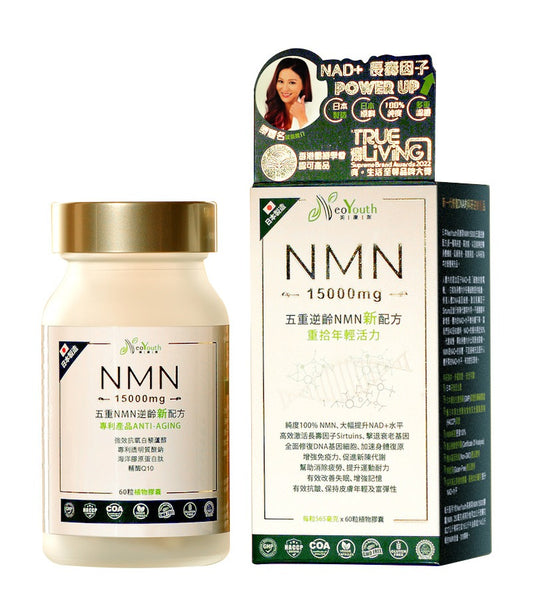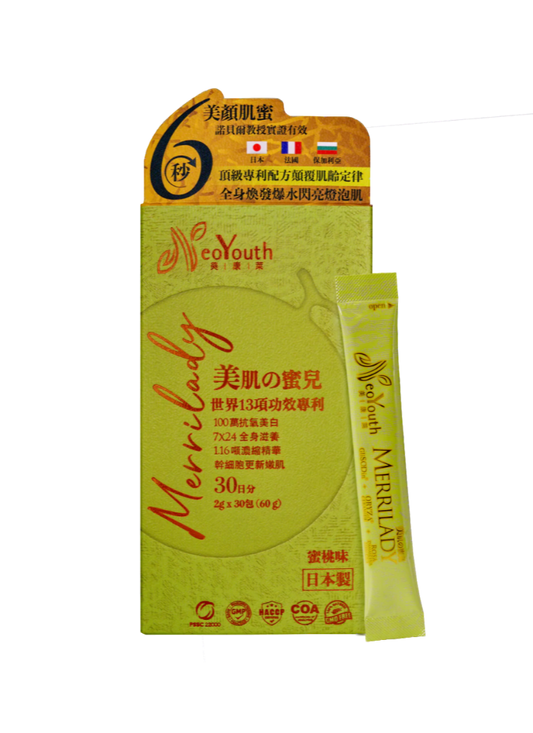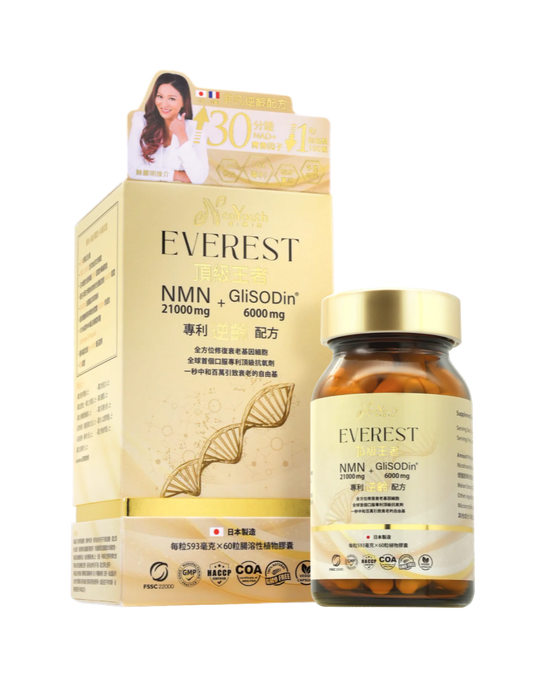Do you feel that your memory seems to be getting worse as you get older? While " older age " and " memory decline " are often considered to be inextricably linked, age isn't the only factor contributing to memory decline . Stress, lack of sleep, and even mental health issues can all affect memory. This article will delve into common causes of memory decline besides age and provide improvement methods to help you maintain clear thinking and good memory.
Definition of memory decline
Memory decline refers to a weakening of a person's ability to receive, store, or recall information. The most common manifestation is forgetting things that just happened or things that were about to be done, but being able to recall them after being reminded. This phenomenon is called "forgetfulness" and does not indicate a disease, but is related to a decline in the efficiency of information transmission between neurons in the brain. Unlike cognitive impairment, memory decline in old age is a normal aging phenomenon, especially common in short-term memory, while long-term or procedural memory (such as the skill of riding a bicycle) usually remains normal.
Examples of short-term memory decline include:
-
Forgot where I put my things
-
Forgetting appointments or plans
-
Forget what you want to say
-
When talking, I can't think of the words to express myself.
-
Forgetting the names of familiar relatives and friends
-
Easily distracted or needing to reread things they've already read [1]
Is memory decline related to old age ?
As people age, brain function declines and memory may gradually deteriorate, but this does not mean that there is a necessary relationship between memory decline and age . In the normal aging process, changes in memory are usually slow and limited, and memory usually declines significantly after the age of 70. [2] Most elderly people can still retain good short-term and long-term memory, and can even continue to learn new things, such as cooking or playing chess. In fact, memory decline is not only related to age , but is also affected by personal health, lifestyle habits and education level.
Main causes of memory decline
If the age of memory decline is not reached , other causes may need to be sought, such as poor lifestyle habits, excessive mental stress, or whether the brain has been damaged in the past. The following are common causes of memory decline [3]:
chronic sleep deprivation
Sleep is a critical time for the brain to repair itself and consolidate memories. Poor sleep quality over a long period of time can affect the process of transferring short-term memories to long-term memories, and it is also difficult to clear brain waste, which can lead to memory decline and slow thinking. Studies have also shown that chronic sleep deprivation can increase the risk of cognitive decline and dementia. [4]
Long-term excessive stress
The body secretes cortisol when it feels stressed. When cortisol is in a high concentration for a long time, it can damage the brain, especially affecting memory function. Excessive cortisol can damage the hippocampus and prefrontal cortex, which are responsible for memory, and reduce short-term memory and working memory (i.e., the ability to multitask). In addition, cortisol can interfere with synaptic connections between neurons, hindering the storage and recall of information, and in the long run, it may even lead to memory decline or increase the risk of cognitive impairment. [5]
Brain injury
Brain injury is one of the causes of memory decline , especially when the damage affects areas related to memory function, such as the hippocampus or prefrontal cortex. Common brain injuries that can affect memory include traumatic brain injury (such as impact or fall), stroke, brain tumors, encephalitis, and hypoxic-ischemic brain injury. These injuries can lead to impaired short-term and long-term memory, and may even affect the ability to process information and multitask.
Mental health issues
Mental health problems can also cause memory decline , such as bipolar disorder, depression, schizophrenia, or experiencing major traumatic and stressful events. For example, patients with depression often experience difficulty concentrating and short-term memory problems, which may affect memory-related structures in the brain, such as the hippocampus, in the long run. Even if mood improves, memory impairment may persist in some people, showing a deep connection between mental state and memory function. [6]
Drinking alcohol and taking medication
Long-term or excessive alcohol consumption and the use of certain medications can impair memory. Alcohol affects brain neurotransmission and structure, leading to short-term memory decline and even neurodegeneration. Certain prescription medications, such as antidepressants and sleeping pills, may also cause inattention and memory difficulties. In addition, illicit drugs can cause memory confusion and decreased learning ability. If the effects of these substances persist, they may accelerate memory decline and cognitive function decline. [7]
Deficiency of nutrients
A deficiency in vitamin B12 and folic acid may lead to memory decline. Studies have shown that older adults with lower blood concentrations of these nutrients perform worse on cognitive tests, particularly in memory and language functions. This suggests that maintaining adequate intake of vitamin B12 and folic acid may help prevent age- related memory decline . [8]
Distinguishing between memory decline and dementia
Memory decline is not a disease; forgetful people can still manage their daily lives and can improve their condition through changes in daily routines and training. However, dementia, such as Alzheimer's disease, is an irreversible condition that significantly impacts daily life, gradually making it difficult to live independently in the future. If you or a loved one experiences the following symptoms, it is recommended to seek a doctor's diagnosis to determine if they have dementia:
-
Ask the same question repeatedly
-
Even after being reminded, I still can't remember what I forgot.
-
Forgetting common vocabulary while speaking, resulting in unclear expression.
-
Unable to do things they were originally good at (such as cooking).
-
Placing items in inconvenient locations (such as putting glasses in the refrigerator).
-
A diminished sense of time or place, leading to getting lost in familiar areas.
-
Significant mood swings or personality changes [1]
How to improve memory decline ?
Whether due to aging or other causes of memory decline , such as stress or lack of sleep, lifestyle adjustments can help improve memory . The following methods can help enhance brain function and slow down the decline:
Get enough sleep :
Maintaining a regular sleep schedule can improve memory decline . Deep slow-wave sleep and REM sleep are especially important for memory consolidation; aim for 7 to 9 hours of sleep each night to allow the brain sufficient time to rest and recover. It's recommended to avoid electronic devices for 60 minutes before bed and maintain a comfortable bedroom temperature of 20 to 24°C to promote melatonin secretion. If you still have difficulty falling asleep, try breathing relaxation techniques or white noise to help your brain enter deep sleep more quickly.
Moderate exercise
Moderate and regular aerobic exercise and resistance training, especially moderate to high-intensity exercise such as brisk walking, running, and swimming, can effectively promote the health of the hippocampus in the brain and promote blood circulation and hormone release in the brain, providing a good growth environment for nerve cells, thereby enhancing memory. Studies have shown that the improvement of cognitive function in the brain is more obvious after exercise, and even short-term exercise is beneficial, making it one of the effective methods to improve memory decline . [9]
Planning your life
By using time-blocking to group similar tasks into fixed time slots, the burden on working memory can be reduced. Combining this with assistive tools (such as Google Calendar or to-do list apps) and setting reminders can transfer short-term memory to external auxiliary memory, freeing up the brain to process higher-order thinking.
Healthy eating
Consuming more vegetables, fruits, and whole grains can help improve memory decline , while reducing refined carbohydrates such as cakes. Appropriate supplements can be taken to supplement nutrition, and unhealthy habits such as excessive alcohol consumption should be avoided.
Managing chronic diseases
High blood pressure, diabetes, and depression can all affect cerebral blood flow and nerve conduction, leading to "vascular cognitive decline." Regular checkups to monitor blood pressure, blood sugar, and cholesterol, along with taking medication as prescribed, can help maintain healthy blood vessels in the brain. If medications may affect memory, alternative options or dosage adjustments should be discussed with a doctor to avoid unnecessary cognitive side effects.
Nutrients that improve memory decline
In addition to adjusting lifestyle habits, supplementing with specific nutrients can also help maintain brain health and improve memory decline . The following nutrients have been shown in studies to help improve memory and slow brain degeneration:
Omega-3 fatty acids
Omega-3 fatty acids are essential components for maintaining brain structure and function, especially DHA, which is closely related to learning and memory. Studies show that supplementing with Omega-3 fatty acids can help improve memory decline and slow cognitive degeneration. Fish oil and deep-sea fish (such as salmon and mackerel) are the most common natural sources. The recommended daily intake is approximately 1,000 to 2,000 mg of the combination of DHA and EPA.
B vitamins (B6, B9, and B12)
Vitamins B6, folic acid (B9), and B12 help maintain the normal functioning of the nervous system. A deficiency in B vitamins can impair cognitive function, leading to confusion or memory loss. B vitamins are widely found in whole grains, dark green vegetables, meat, and legumes. Daily supplementation can help prevent premature brain aging and improve concentration.
Vitamin D
Vitamin D deficiency may increase the risk of memory decline and dementia. Sunlight exposure is the primary source, and it can also be obtained from fish, egg yolks, and fortified dairy products. Adults are advised to consume approximately 600 to 800 IU daily to improve memory decline and maintain stable cognitive function.
ginkgo
Ginkgo is a widely used herb for promoting blood circulation in the brain, and studies have shown that it helps improve mild memory decline and mental confusion. Its antioxidants can combat free radical damage to brain cells and help stabilize nerve conduction.
L-Theanine
L-Theanine, a naturally occurring amino acid found in green tea, has relaxing and calming effects. Studies show it can improve verbal fluency and executive function, and help relieve stress. When taken with caffeine, L-theanine may also help improve attention and focus, thereby improving memory and slowing aging .
Coenzyme Q10
Coenzyme Q10 is an antioxidant found in human cell membranes that helps produce energy and protect cells from damage. Studies have shown that higher Q10 levels are associated with better cognitive and executive functions, helping to maintain brain health and improve memory decline .
Curcumin
Curcumin is an active compound extracted from turmeric and has powerful antioxidant and anti-inflammatory properties. Scientific research has found that curcumin supplementation can improve working memory, attention, mood, and help reduce fatigue. Its antioxidant effect also helps delay neurodegeneration and cognitive decline. [10]
Japanese Miconlai's Five-Fold Anti-Aging Formula Helps Improve Memory Decline
Memory decline is not solely a result of aging; lifestyle and physical factors can also contribute. The Japanese brand, Miconlai NMN15000+12000Ex , offers a five-fold anti-aging formula combining high-concentration NMN and multiple patented ingredients to effectively support brain and cellular health, revitalize memory, and slow down aging. Product features are as follows:
-
100% high-purity NMN: It is rapidly converted into NAD+ in 30 minutes, promoting cell renewal, delaying brain and nerve aging, helping to improve concentration, and improving memory decline .
-
Patented sodium hyaluronate: Small molecules are more easily absorbed. In addition to moisturizing the skin and joints, it also supports the health of spinal cord and brain cells and maintains a stable tissue environment.
-
Coenzyme Q10: It has a powerful antioxidant effect, reduces the damage of free radicals to brain cells, improves brain metabolism, helps maintain clear thinking and memory, and delays the effects of age- related memory decline .
-
Easily absorbed capsule design: The plant-based capsules dissolve and are absorbed quickly, increasing the conversion rate. NMN effectively enters the bloodstream within 10 minutes and is converted into NAD+ within 30 minutes, exerting an immediate effect.
-
Additive-free formula: Free of preservatives, pesticides, heavy metals, soy, dairy products, and gluten. Safe and pure, suitable for sensitive individuals.
-
Developed and manufactured in Japan: The entire process involves selecting raw materials and manufacturing in Japan, and is certified by GMP and HACCP, and is recognized by the Hong Kong Medical and Nursing Association.
-
Easy supplementation: Just 1 to 2 capsules daily. For those over 40, it is recommended to take 2 capsules each time for more effective treatment of age- related memory decline .
Facing the causes of memory decline and improving quality of life
This article explains that aging is not the most direct cause of memory decline ; in fact, lifestyle and health factors are the most relevant. Therefore, to improve memory decline , it's necessary to identify the root cause before taking appropriate measures to enhance memory and prevent or delay the risk of dementia.
References
1. El Camino Health - How to slow down age-related memory decline
2. Department of Health Elderly Health Services - The Relationship Between Memory and Old Age
3. AcroViz Technology - What are the causes of memory decline? To enhance memory, the importance of food cannot be ignored!
4. Sleep Foundation - How Lack of Sleep Impacts Cognitive Performance and Focus
5. Montclair Memory Clinic - Stress and Memory Loss: What You Need to Know
6. Medical News Today - Are depression and memory loss connected?
7. Serenity Grove - What Drugs Cause Memory Loss?
8. ScienceDirect - Vitamin B12-folic acid supplementation improves memory by altering mitochondrial dynamics, dendritic arborization, and neurodegeneration in old and amnesic male mice
9. World Gym Blog - Always forgetting things? Aerobic exercise and weight training can enhance memory.
10. GoodRx - The 9 Best Supplements to Improve Brain Health: What the Science Says





